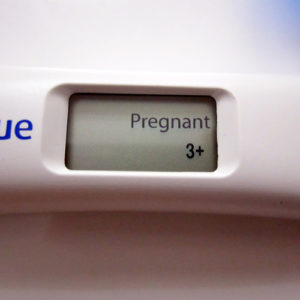What Is PCOS?
Polycystic Ovary Syndrome (PCOS) is a hormone-related medical condition that affects women.
Some of the symptoms of PCOS include:
- Irregular or no menstrual periods
- Hirsutism (excess hair growth)
- Acne
- Weight gain or weight loss without dieting
Living With PCOS: Beyond Fertility
PCOS is not just about fertility issues; it is a multifaceted health problem affecting your overall health. Most women only focus on the issues related to conceiving, but in real sense, there’s much more to PCOS that needs to be talked about.
- Mental health: It can take an emotional toll. You are not alone if you get frustrated, anxious, or depressed. Never feel afraid to ask for the help of a therapist or counsellor familiar with PCOS.
- Long-term health: PCOS is a risk factor for type 2 diabetes, heart disease, and endometrial cancer. Regular checkups and screenings are important.
- Body image: It can be rough to deal with acne, extra hair, or weight changes. Just a reminder that your worth has nothing to do with these symptoms. Try to develop some self-care habits that make you feel confident and comfortable in your body.
- Holistic approach: You may want to consider other treatments, such as acupuncture or herbal remedies, in addition to the conventional ones. However, new therapies should always be discussed with your doctor.
By taking care of these areas, you will facilitate your fertility potential and improve your quality of life with PCOS.
What Is The Treatment For PCOS?
Polycystic Ovarian Syndrome (PCOS) affects how a woman’s body produces and releases eggs, often making it difficult to get pregnant. PCOS can also cause an imbalance in the hormones oestrogen and progesterone.
The treatment for PCOS is often different depending on the symptoms and severity of the condition. Some women may be able to manage their symptoms with lifestyle changes, while others may need medication or surgery.
There are many types of treatments for PCOS, each with their own pros and cons, but the most common treatment options are:
- Lifestyle changes: diet, exercise, weight loss
- Medication: metformin, clomiphene citrate
- Laparoscopic ovarian drilling or laparoscopic ovarian cystectomy
How Can A Woman Get Pregnant With PCOS?
PCOS is a condition that can cause infertility. It is a hormone imbalance that affects the ovaries and leads to irregular periods, weight gain, and other symptoms.
PCOS is often misdiagnosed because it can be confused with other conditions. It can take years for women to receive a correct diagnosis.
Women with PCOS may have trouble conceiving due to hormonal imbalances which can lead to ovulation problems and make it difficult for them to produce eggs.
Don’t lose heart though, if you have PCOS it doesn’t mean that you can’t conceive. In fact, most women who are diagnosed with PCOS and manage their symptoms will be able to get pregnant in time. They might also have a harder time getting pregnant and conceiving, though — which is why it’s important to talk to your doctor about the best treatment plan for your needs.
The best way to optimise your fertility when you have PCOS is to make changes to your lifestyle. Our simple action plan for PCOS can help you on your way.
PCOS Action Plan
1. Nutrition
- Try reducing your intake of sugars and refined carbohydrates, like white bread, white rice and white pasta or sugary drinks, cakes and biscuits.
- Eat high protein foods such as eggs, chicken, fish and lentils and green leafy vegetables like spinach or kale. Drink plenty of water and non-caloric fluids. Avoid eating fried or fatty foods, or foods that are high in fat and salt, such as chips with dips or sausages and bacon. Opt for healthier choices such as grilled fish, chicken breasts, low-fat cheese and avocado. You should also eat fruits low in sugar, like apples, pears, mangos and apricots.
- If you are unsure and are looking for diet advice and support, talk to a specialist about it.
2. Exercise
- 150 minutes of moderate-intensity exercise each week can help you lose weight and improve your physical abilities, but it doesn’t have to be motivated by weight loss alone. It can be about staying healthy to improve your chances of conceiving.
- Walking is a very popular way to get exercise. It’s a low-impact activity that doesn’t require equipment and can be done anywhere, anytime. It’s also a great way to enjoy some time in nature.
- A sedentary lifestyle can cause fertility problems. Reduce your time spent watching TV or surfing the internet by getting up and moving around instead.
3. Lifestyle
- Alcohol consumption is one of the leading causes of infertility in women. The chances are much greater when a woman has a heavy alcohol intake or when she drinks on a regular basis. It increases the risk of miscarriage, birth defects, and premature labour. Reducing your intake of alcohol and, if possible, trying to avoid alcohol altogether can help increase your chances of conception.
- Smoking can lead to complications during pregnancy, so it’s best if you quit when trying to get pregnant.
- People who are fit and healthy are more likely to conceive, so being at a healthy weight is key for women. Several studies have shown that even just losing 5% of your body weight can improve symptoms and one’s fertility.
- Aim for a BMI below 30 as this is the range where people who have a healthy weight are typically found. If you’re not sure whether or not you fall into this range, use our BMI calculator to find out.
- Avoid recreational drugs when trying for a baby. Recreational drugs alter levels of hormones and chemicals in the body which can affect ovulation and menstruation.
- It’s best to stay away from caffeine when trying to get pregnant. Limit yourself to one or two cups of coffee/days/every other day.
- The ability of sperm to reach the egg can increase or decrease depending on the amount of water in your cervical mucus, so stay hydrated by drinking plenty of water
- If you’re trying to conceive, take steps to reduce the stress in your life. Some good ideas include yoga, meditation, or simply setting up a clear sleep schedule and giving it a chance.
4. Take Control
- Many women choose to track their ovulation cycle to see when they can become most fertile for optimal pregnancy chances. When women track their ovulation cycle, they can maximise their chances of conception and avoid potential problems. Ovulation Tests can help with predicting ovulation when you have PCOS.
- If you are experiencing symptoms of PCOS and want to know more, visit your doctor or a specialist nurse and they can provide you with more information.
- Take a pre-conception supplements such as Pregnacare Conception or Seven Seas Trying for a Baby vitamins.
- Have sex on a regular basis. If you can, every couple of days throughout your cycle
- If you can, start making the healthy changes above. You might not need to do them all, just the ones that are appropriate for you and your current lifestyle. However, as well as concentrating on your lifestyle, it is important to talk to a doctor and get the help you need to prepare your body to conceive.
PCOS Support Groups In The UK
For support in all matters relating to PCOS, these groups are recommended:
- Verity is a self help group, established in 1997, to share the truth about the condition and improve the lives of individuals living with PCOS.
- PCOS Awareness Association — Join the Cysterhood and get support from other women who are experiencing the same symptoms.
Photo by Meiying Ng on Unsplash
Zoom Baby is a leading supplier of Pregnancy Tests and Ovulation Test Kits





